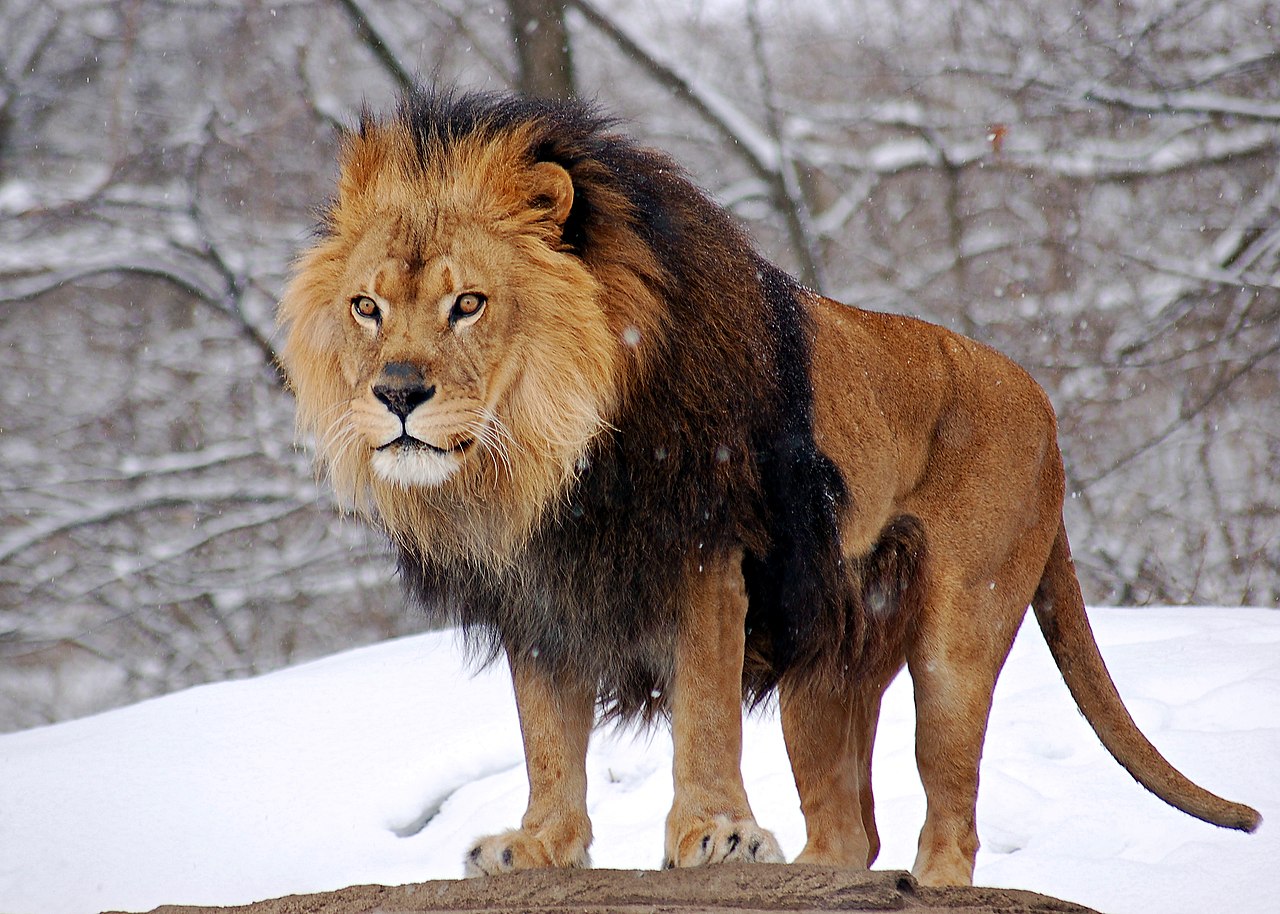Reading Notes: Aesop's Fables (Jacobs), Part A
(Lion, Wikipedia Commons)
Because of the great variety of stories from the Aesop's Fables collection this week, it was difficult for me to choose just one story to focus on more closely. Mostly, I was able to focus on a character, more than a single short story. I found that the Lion is the one who varies more than I realized--the Fox remains a trickster, the Wolf is mostly dangerous, etc. Typically, when I think of how a lion is often portrayed, I think of nobility and fierceness, but the Lion in Aesop's Fables is powerful, selfish, abused, friendly, and wise in turn. Overall, I couldn't tell if this character was universally "good" or "bad."
The two stories that I focused on for my notes are "The Lion's Share" and "The Lion and the Statue," since I think these would both be fascinating stories to retell. The morals of the stories ("You may share the labors of the great, but you will not share the spoil" and "We can easily represent things as we wish them to be," respectively) provide a lot to work with in terms of storytelling. In the first story, the Lion collaborates with the Fox, the Jackal, and the Wolf to hunt a stag, but the Lion takes all of the spoils from their success. The story feels like a warning about being careful about who you work with, because when the work is finished, the strongest could take control. In the second story, the Lion is in an argument with a man over which of their two species is the strongest, and the man takes the Lion to a statue to prove his point. But the Lion points out that it was humans who made the statue, and therefore were biased in their portrayal of the two. In the end, this story is a warning against basing too much of your worldview on your own biases.
The two stories that I focused on for my notes are "The Lion's Share" and "The Lion and the Statue," since I think these would both be fascinating stories to retell. The morals of the stories ("You may share the labors of the great, but you will not share the spoil" and "We can easily represent things as we wish them to be," respectively) provide a lot to work with in terms of storytelling. In the first story, the Lion collaborates with the Fox, the Jackal, and the Wolf to hunt a stag, but the Lion takes all of the spoils from their success. The story feels like a warning about being careful about who you work with, because when the work is finished, the strongest could take control. In the second story, the Lion is in an argument with a man over which of their two species is the strongest, and the man takes the Lion to a statue to prove his point. But the Lion points out that it was humans who made the statue, and therefore were biased in their portrayal of the two. In the end, this story is a warning against basing too much of your worldview on your own biases.
I think both of these stories would been good to retell in a modern setting, especially the second one. The characters could be changed to be all humans, but the moral of the story could be the same--the story might look a lot different with the same universal truth of a message.
Bibliography: Aesop's Fables (Jacobs), by Joseph Jacobs, Lions, Part 1.
Bibliography: Aesop's Fables (Jacobs), by Joseph Jacobs, Lions, Part 1.



Comments
Post a Comment